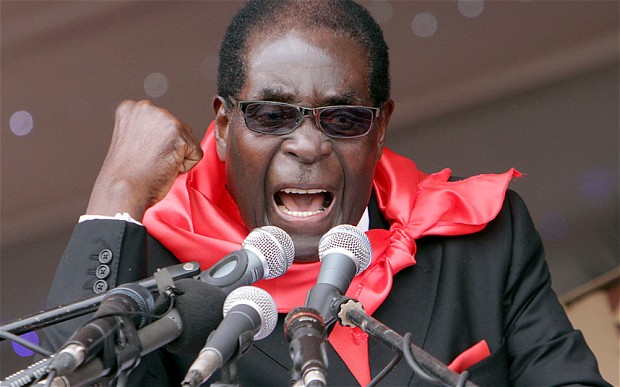
In a few weeks, Zimbabwe turns 36 years. The euphoria that came with independence is long gone. Of the 54 countries in Africa, Zimbabwe is one of the youngest countries on the continent. Perhaps, we are only older than three or four countries in Africa.
Tapiwa Gomo

Just like any other country born out of the struggle, Zimbabwe was not just full of promise, but it was the “Promised Land” at independence. Between 1980 and 1990, we were the centre of everything good and now we are the example of everything bad. The economy was functioning. Milk and bread were delivered at our doorsteps. Roads, water and electricity were functioning. They just needed to be expanded to accommodate increased access by a black population that had just broken the racial barriers.
As we took the baton of leadership, as a black people, we were told to sing, dance and say the colonialists were the problem and armed violence was the only solution to get rid of them. We were told the colonialist was the problem because he came to our land and developed it and never allowed black people to use it. We were taught the colonialist fed on blood and sweat of the black people.
In fact, we were taught to see the beautiful roads, good buildings, the clean water from the taps, the electricity and the beauty of the colonialists’ gardens as symbols of our sweat, blood and abuse. And with that we were inspired to sacrifice our own sweat, blood and life to get rid of the colonialist.
There is one part of the story which they did not tell us. Maybe they forgot, but if they did perhaps, it was a deliberate omission. They did not tell us that sweat and blood alone, without brains, amount to nothing, but noise, chaos and violence. They didn’t tell us that physical effort needed to be guided by thinking — strategic thinking. We fought hard without thinking. So when we viewed what the colonialist built, we only saw the physical effort that went into building the infrastructure that we inherited not the brains. We allowed our minds to be inspired by stories of the past than dreams of the future.
As we have come to learn now, a good dog is one that barks and scares the thief away, but the best dog is one that catches the thief without barking. A timid dog is in fact, the one that barks louder. It is an indisputable fact that across Africa, we are seen as the doyen of the revolutionary struggles.
We speak what other Africans, who have suffered colonial oppression, want to hear, but not want to say themselves. They listen to our oratory, as they use their brains on their sweat and blood to develop their countries. We have become that drummer who fails to plant in his farm as he beats the drums to entertain others.
- Chamisa under fire over US$120K donation
- Mavhunga puts DeMbare into Chibuku quarterfinals
- Pension funds bet on Cabora Bassa oilfields
- Councils defy govt fire tender directive
Keep Reading
And indeed that missing part of the story seems to be haunting us today. No one told us that we needed to mix blood and sweat with brains. Or perhaps those who assumed leadership were of the view that development happens naturally without instigation by people.
Maybe they thought roads would heal from potholes and expand to areas where they are not by some act of nature. We are believers isn’t it? We believe in spirits and everything that speak of spirits. We believed pure diesel can come out of a rock, and that gold shall rain from the skies and that water shall treat itself in the pipes. Yes, we believe in nature taking its course and following the wind. That is how we have been blown to the edges of poverty and political uncertainty. The current succession tussles are not a development policy, but evidence of a political failed system.
The colonialists who died during the wars of independence, may just be cursing themselves in their graves if ever they had a view of how bad we have turned the country.
They too died defending their roads, infrastructure, water and electricity. Some of them thought the black government had a better plan, which would make theirs look stupid. If they looked at the country today, they may be wondering why in the first place they put their lives in the line of fire.
All we needed was access to destroy that which the colonialist built. Today, freedom from colonial oppression looks like we wanted to over use and destroy that which was built by the colonialist.
Sadly, it is the same generation of people and their thinking that are overcrowding the political space. If politics and historical adventures are what must lead us into the future then, our future is either in the dark or in the past.
The current crop of opposition leadership is only relevant when opposing Zanu PF and its leadership. Other than that, they must just sit down for they have nothing to offer, should Zanu PF and its leadership vanish today. Zimbabwe needs new leadership with strategic brains — people who speak of future plans.
Our sons and daughters crave to discuss strategic issues than to listen to folklores. The few good brains around today only discuss history and rarely the future. It is about Mbuya Nehanda, the historical relationship between and among politicians and grounding everything into the past. When are we going to talk about our future?











